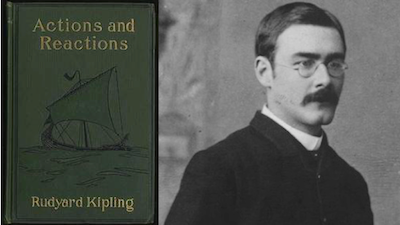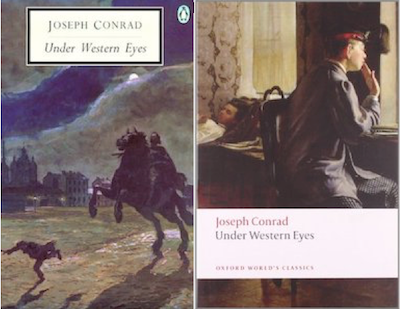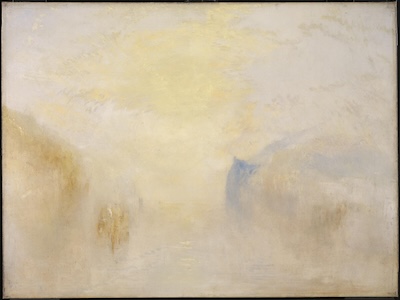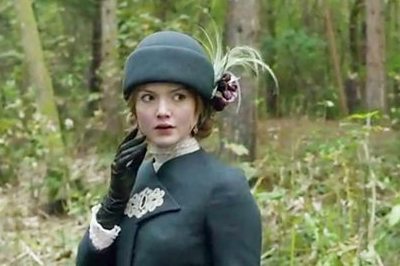
(Carson McCullers: Columbus State University via Library of America)
Rereading a Carson McCullers novel recently, I was thinking again about the curious affair of the opening line. Though I’m quite capable these days of forgetting someone’s name even while they’re still being introduced to me, I recall or recognise the openings of books read twenty, thirty, even forty years ago. Ford, unsurprisingly; Joyce, Faulkner, Patrick White, Virginia Woolf, Henry Miller, one or two, the famous ones by Beckett and by Camus (with translators and their reviewers jousting over the ‘correct’ Anglo-American equivalent to that one word, ‘maman’). Not always the ones I expect, sometimes books of which I remember practically nothing else. Here, The Heart Is a Lonely Hunter’s opening, ‘In the town there were two mutes, and they were always together’, was, I realised, already imprinted on one of the walls of my brain, perhaps a little faded after more than a quarter of a century, but still clearly legible.
First lines are frequently very far from first thoughts; and sometimes freighted, by writer or critic, with all manner of significance. Of the famous opening of John Keats’s Endymion:
A thing of beauty is a joy for ever:
Its loveliness increases; it will never
Pass into nothingness; but still will keep
A bower quiet for us, and a sleep
Full of sweet dreams, and health, and quiet breathing
Robert Gittings remarked that ‘Keats had not only found a first line and a beginning; he had found a principle that was to maintain him all through his life.’[1] That is, loving the principle of beauty in all things.
Also attentive to large implications, Hugh Kenner wrote of the eventual opening of Pound’s Cantos:
And then went down to the ship,
Set keel to breakers, forth on the godly sea
that here the poet was pondering ‘a chord that should comprise four of history’s beginnings: the earliest English (“Seafarer” rhythms and diction), the earliest Greek (the Nekuia), the beginnings of the 20th-century Vortex, and the origins of the Vortex we call the Renaissance, when once before it had seemed pertinent to reaffirm Homer’s perpetual freshness.’[2] What actually precedes that first word, ‘And’, has also proved a fertile subject for discussion. One thing that precedes it, of course, is the section of Canto III in the 1917 Poetry publication, ‘Three Cantos of a Poem of Some Length’, that alludes to Andreas Divus, the Renaissance translator of Homer’s Odyssey into Latin and continues:
‘Here’s but rough meaning:
“And then went down to the ship, set keel to breakers,
Forth on the godly sea”’[3]

That first line, in a prose work, can suggest tone, style, diction, even imply the extent or nature of the whole. It can also, of course, strike the wrong note with some readers. ‘By the way’, Penelope Fitzgerald wrote to the novelist Francis King, ‘wouldn’t you agree that the worst thing about the opening of Howards End isn’t so much the letter itself (as a method) as the “One may as well begin with”. It makes me feel resentful. Why begin at all, if that’s how he feels about it.’[4]
And, it hardly needs saying, there is often another issue about that first line to consider, specifically, is it in fact the first line at all? Is the first line of Byron’s Don Juan, the ‘Preface to Cantos I and II’—‘In a note or preface (I forget which) by Mr W. Wordsworth to a poem’—or the ‘Dedication’—‘Bob Southey! You’re a poet, poet laureate’—or ‘Canto I’: ‘I want a hero, an uncommon want’? We all know that Melville’s Moby Dick commences dramatically: ‘Call me Ishmael.’ Except that it really begins: ‘Etymology (Supplied by a late consumptive usher to a grammar school.)’ This list is followed by a dozen pages of ‘Extracts (supplied by a sub-sub-librarian.)’ And then there are accretions: readers beginning Ford’s The Good Soldier will now, more often than not, reach its famous opening line (‘This is the saddest story I ever heard’) via the ‘Dedicatory Letter’, addressed to Stella Bowen, added to the 1927 edition (a dozen years after the first) and generally included in subsequent editions – the opening line itself having been altered from the serial version in Blast: Review of the Great English Vortex, while the story of that alteration is contained in the letter (one version of the story, anyway, just to be clear).

(Frances Flora Bond Palmer, lithograph published by Currier and Ives, ‘Rounding a Bend on the Mississippi – The Parting Salute’, Metropolitan Museum of Art)
Huckleberry Finn also has its prefatory matter and its own slight challenge to determine exactly how and where it begins. ‘You don’t know about me, without you have read a book by the name of “The Adventures of Tom Sawyer,” but that ain’t no matter.’ This sentence is preceded by the ‘Notice’ warning against attempts to find motive, moral or plot in the narrative that follows and a note about the variety of dialects used in it, Twain adding (still funny, I think, 140 years on): ‘I make this explanation for the reason that without it many readers would suppose that all these characters were trying to talk alike and not succeeding.’
D. H. Lawrence was sometimes prone to writing complete new versions of a text, rather than tinkering. Still, as Frances Wilson notes, in the case of the superb ‘Introduction’ to the Memoirs of the Foreign Legion by ‘M. M.’ (Maurice Magnus), ‘apart from revising his opening line and rethinking some later sentences, his sixty handwritten pages are as neat and unblotted as the work of a medieval scribe.’[5] Lawrence himself thought it ‘the best single piece of writing, as writing, that he had ever done’.[6]
Last words are, of course, a different matter entirely. . .
Notes
[1] Robert Gittings, John Keats (London: Pelican Books, 1971), 188.
[2] Hugh Kenner, The Pound Era (London: Faber and Faber, 1972), 349.
[3] So one earlier thing is those quotation marks. The 1917 texts are included in Ezra Pound: Poems and Translations, edited by Richard Sieburth (New York: Library of America, 2003), 318-330, and discussed at length by Ronald Bush, The Genesis of Ezra Pound’s Cantos (Princeton: Princeton University Press, 1989).
[4] Letter of 12 April [c.1978], So I Have Thought of You: The Letters of Penelope Fitzgerald, edited by Terence Dooley (London: Fourth Estate, 2008), 269.
[5] Frances Wilson, Burning Man: The Ascent of D. H. Lawrence (London: Bloomsbury, 2021), 153. Lawrence’s essay is reprinted in Phoenix II: Uncollected, Unpublished and Other Prose Works by D. H. Lawrence, Collected and Edited with an Introduction and Notes by Warren Roberts and Harry T. Moore (London: William Heinemann, 1968), 303-361.
[6] David Ellis, D. H. Lawrence: Dying Game 1922-1930 (Cambridge: Cambridge University Press, 1998), 6. Lawrence said this to Catherine Carswell: see her The Savage Pilgrimage: A Narrative of D. H. Lawrence (1932; Cambridge: Cambridge University Press, 1981), 117.































